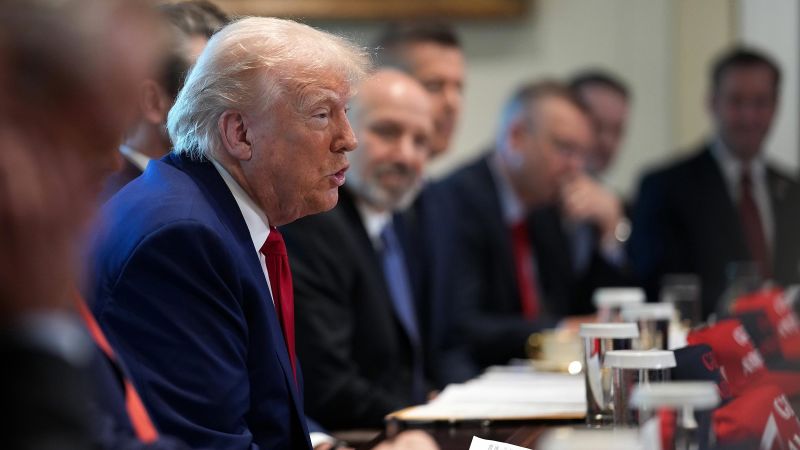Trump's Bold Budget: Massive Defense Spending, Deep Cuts to Key Domestic Programs

The White House has released a controversial budget proposal that signals a significant shift in national priorities. At its core, the plan prioritizes national security, proposing a substantial $1 trillion investment in defense and homeland security. However, this ambitious spending commitment comes at the expense of vital domestic programs, with significant cuts planned for education, foreign aid, environmental protection, health initiatives, and public assistance.
A Defense-Focused Approach: The proposed $1 trillion for defense represents a considerable increase, aiming to modernize the military, bolster cybersecurity capabilities, and enhance readiness for emerging threats. The administration argues this investment is crucial for maintaining American leadership on the global stage and protecting national interests. Details regarding specific defense spending allocations are expected to be released in the coming weeks, but early indications suggest increased funding for areas like advanced weaponry, personnel training, and technological upgrades.
Significant Cuts Across the Board: The budget blueprint doesn't offer a rosy picture for many domestic sectors. Education faces substantial cuts, potentially impacting student loan programs, grants for schools, and initiatives aimed at improving educational outcomes. Foreign aid, often a target of budget reductions, sees further cuts, which critics argue could harm diplomatic efforts and humanitarian assistance programs worldwide. Environmental protection agencies are also slated for reduced funding, raising concerns about the nation's ability to address climate change and protect natural resources.
Impact on Health and Public Assistance: The proposed cuts extend to crucial health and public assistance programs. Changes to Medicaid and other social safety nets are anticipated, potentially affecting millions of Americans who rely on these services. The administration contends that these changes are aimed at promoting fiscal responsibility and encouraging individual responsibility, but critics warn that they could disproportionately impact vulnerable populations.
Political and Economic Ramifications: This budget proposal is expected to spark intense debate in Congress. Democrats have already voiced strong opposition, arguing that the cuts are short-sighted and would harm vital programs. Economists are also weighing in, analyzing the potential impact of the budget on economic growth, job creation, and income inequality. The proposed cuts to education and infrastructure could stifle long-term economic development, while reduced environmental protections could have negative consequences for public health and the environment.
Looking Ahead: The budget proposal is just a starting point for negotiations with Congress. The final outcome will depend on the political landscape and the willingness of both parties to compromise. Regardless of the final version, this budget blueprint provides a clear indication of the Trump administration’s priorities and its vision for the nation’s future. It highlights a trade-off between national security spending and the funding of domestic programs, a debate that is likely to dominate the political conversation in the coming months. The long-term effects of these proposed changes remain to be seen, but they are certain to have a profound impact on American society and the global stage.






